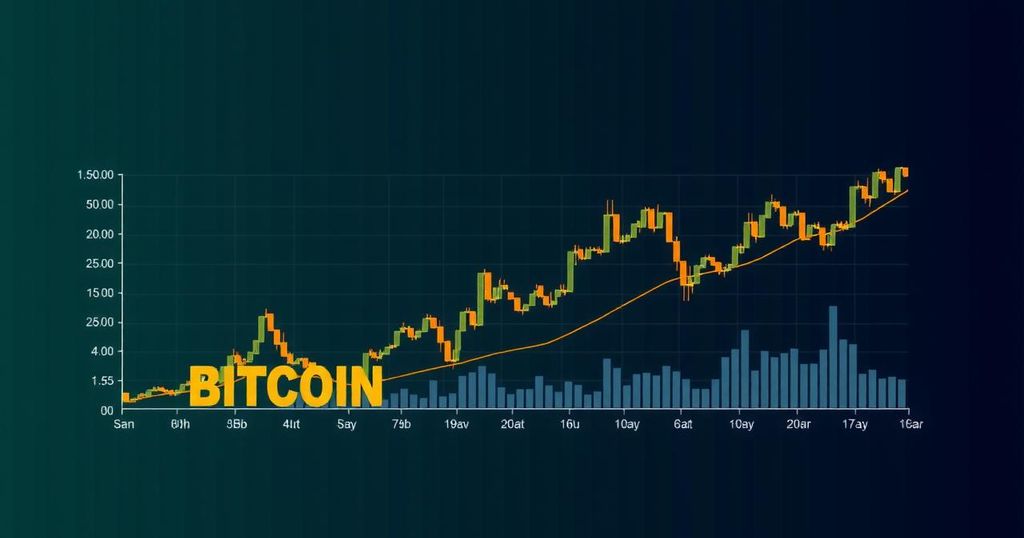Understanding the Factors Leading to Bitcoin Price Dips
Analyzing the Common Triggers Behind Bitcoin Price Declines
Bitcoin is widely recognized for its volatile price movements, which frequently leave investors feeling uncertain. However, it is imperative to understand the underlying causes of these abrupt price declines. Various elements, encompassing global economic conditions, regulatory changes, and prevailing market sentiments, contribute to Bitcoin’s propensity for rapid depreciation. By gaining insight into these triggers, investors can better navigate the unpredictable landscape of cryptocurrency.
Global Economic Turbulence: The Impact on Bitcoin Prices
The interconnectedness of the global economy means that disturbances in one region can affect markets on a global scale. For instance, during significant events such as the COVID-19 pandemic in 2020, Bitcoin’s price underwent substantial fluctuations that mirrored widespread economic uncertainty. As individuals grappled with fears regarding the future, this trepidation permeated into the cryptocurrency market.
Commonly, during times of economic distress—be it due to a looming recession, inflation concerns, or stock market downturns—investors often gravitate towards perceived safer investments, which can inadvertently result in decreased confidence in Bitcoin. Although Bitcoin has been portrayed as a “safe haven” akin to gold, this perception is often challenged during economic crises, indicating that the dynamics of the market can behave paradoxically. Thus, one may ponder whether Bitcoin genuinely serves as a hedge against economic instability, which is a subject of ongoing discussion among financial experts.
The Influence of Regulatory Changes on Bitcoin’s Value
Cryptocurrency markets are similarly susceptible to regulatory modifications imposed by governments worldwide. The swift enactment of new laws can instigate abrupt shifts in the perceived viability of Bitcoin, with potentially dire consequences for its valuation. A notable example includes China’s rigorous actions against cryptocurrency mining and trading, leading to significant reductions in Bitcoin’s price following each regulatory announcement.
Conversely, the implementation of favorable regulations can enhance Bitcoin’s attractiveness, as evidenced by the rise in its value corresponding to positive developments such as the U.S. Securities and Exchange Commission’s (SEC) announcements regarding Bitcoin Exchange-Traded Funds (ETFs). However, as regulatory frameworks vary considerably across nations, the Bitcoin market experiences a relentless cycle of adaptation to these evolving guidelines, creating a challenging environment for investors to navigate.
Market Sentiment: The Power of Public Perception
The prevailing public sentiment regarding Bitcoin plays a critical role in its price volatility. Social and mainstream media frequently act as catalysts for shifts in market perception, as demonstrated by instances in which prominent public figures have dramatically influenced Bitcoin’s value through their statements or actions. For example, Elon Musk’s engagement with Bitcoin on social media provoked intense market reactions, illustrating the potent effect of influencer-driven narratives.
Additionally, the phenomenon of Fear of Missing Out (FOMO) further complicates the investment landscape. As individuals observe significant gains experienced by others within the Bitcoin space, they may hastily invest without fully comprehending the potential risks involved, inadvertently contributing to market bubbles that ultimately result in declines.
Conclusion
In conclusion, Bitcoin’s price dips are not mere coincidences; they are driven by an intricate interplay of global economic factors, regulatory shifts, and market sentiment. By remaining informed and exercising caution, investors can enhance their capacity to anticipate these fluctuations. In the highly volatile realm of Bitcoin trading, preparedness and understanding are essential for success. It is advisable to seek the counsel of a financial expert prior to making any significant investment decisions.
Disclaimer: This document serves for informational purposes only and should not be construed as financial advice. It is essential to research and understand the potential risks associated with any trading activities or financial endeavors before proceeding.








Post Comment